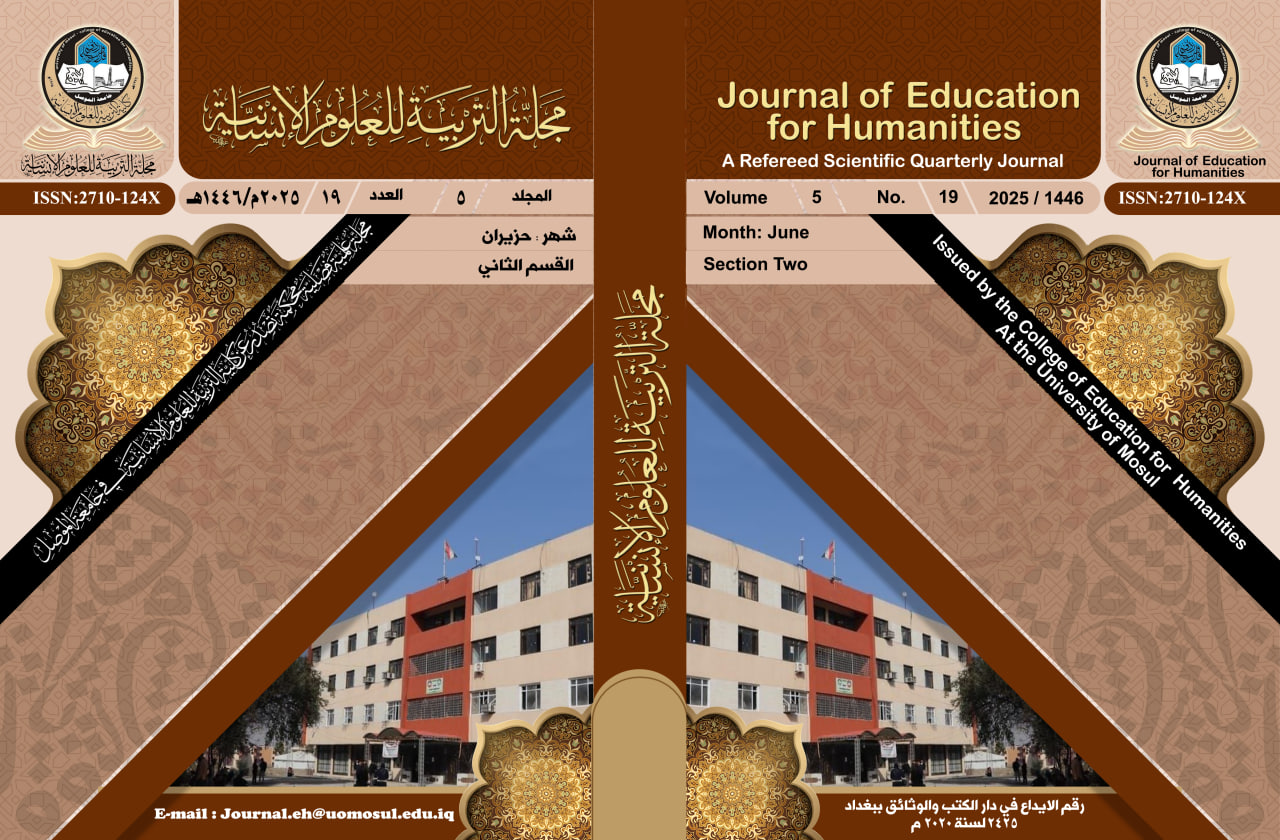Abstract
This research aims to clarify the deviation in reasoning towards the true belief, highlight this effect, and its seriousness concerning the true belief, as well as to warn against it and to outline what reasoning should be in order to preserve the true belief. It emphasizes the rejection of excess or neglect, extremism or deficiency, rigidity or leniency. Rather, the focus should be on moderation and balance according to the understanding and methodology of the early generations. The issue of the methodology of reasoning is completely clear in the calls of the prophets and messengers, and the Islamic religion is built on clear foundations that align with sound nature and rational thought.
This research includes an introduction, two main sections, and a conclusion. The first section defines the terms of the research title, while the second discusses the impact of deviation in reasoning on the true belief. The conclusion summarizes the findings and recommendations of the research, indicating that the methodologies of those who deviate in reasoning within religion are numerous, confused, and contradictory in their components. Deviation in reasoning is misguidance and error, while proper reasoning is light and guidance; hence, it is essential to recognize the former to clarify the latter.
One of the effects of deviation in reasoning regarding the true belief is subjugating legal evidence to personal desires, misinterpreting it, following ambiguous texts, relying on weak and fabricated evidence, doubting authentic evidence, prioritizing reason over transmission, failing to revere and sanctify the legal texts, and neglecting the understanding of the Prophet Muhammad (peace be upon him) and his noble companions regarding the legal texts. Stability on the true belief is manifested in adherence to the principles, rules, and correct standards of reasoning, and in applying this through speech, action, and conviction.
This research includes an introduction, two main sections, and a conclusion. The first section defines the terms of the research title, while the second discusses the impact of deviation in reasoning on the true belief. The conclusion summarizes the findings and recommendations of the research, indicating that the methodologies of those who deviate in reasoning within religion are numerous, confused, and contradictory in their components. Deviation in reasoning is misguidance and error, while proper reasoning is light and guidance; hence, it is essential to recognize the former to clarify the latter.
One of the effects of deviation in reasoning regarding the true belief is subjugating legal evidence to personal desires, misinterpreting it, following ambiguous texts, relying on weak and fabricated evidence, doubting authentic evidence, prioritizing reason over transmission, failing to revere and sanctify the legal texts, and neglecting the understanding of the Prophet Muhammad (peace be upon him) and his noble companions regarding the legal texts. Stability on the true belief is manifested in adherence to the principles, rules, and correct standards of reasoning, and in applying this through speech, action, and conviction.
Keywords
effect – deviation – reasoning – true belief – doctrinal study
Abstract
يهدف هذا البحث إلى بيان الانحراف في الاستدلال على المعتقد الحق، وإبراز هذا الأثر، وخطورته على المعتقد الحق، والتحذير منه، وبيان ما يجب أن يكون عليه الاستدلال للحفاظ على المعتقد الحق، ونبذ الإفراط أو التفريط فيه، أو الغلو أو التقصير، أو التشدد أو التساهل، وانما الوسطية والاعتدال على فهم السلف ومنهجهم، إذ قضية منهج الاستدلال واضحة تماما في دعوة الأنبياء والمرسلين، وتم بناء الدين الإسلامي على أساسيات واضحة، ومتوافقة مع الفطرة السليمة، والعقل السليم.
واحتوى البحث هذا على مقدمة ومطلبين وخاتمة، الأول التعريف بمصطلحات عنوان البحث، والثاني أثر الانحراف في الاستدلال على المعتقد الحق، وتضمنت الخاتمة ما خلص إليه البحث من نتائج وتوصيات، ومن ذلك أن مناهج أهل الانحراف في الاستدلال في الدين كثيرة، ومضطربة، ومتناقضة في مفرداتها، وأن الانحراف في الاستدلال زيغ وضلال والاستقامة في الاستدلال نور ورشاد، فيجب معرفة الأول ليتضح الثاني.
وأن من أثر الانحراف في الاستدلال على المعتقد الحق اخضاع الأدلة الشرعية للهوى، والتأويل الباطل لها، واتباع المتشابه، والأخذ بالأدلة الضعيفة والموضوعة، والتشكيك في الأدلة الصحيحة وتقديم العقل على النقل، وعدم تعظيم النص الشرعي وتقديسه، وترك اتباع فهم رسول الله صلى الله عليه وسلم وصحابته الكرام رضى الله عنهم – للنص الشرعي، وأن الثبات على المعتقد الحق يتمثل في التمسك بأصول الاستدلال وقواعده وضوابطه الصحيحة، وتطبيق ذلك قولاً وعملاً واعتقاداً.
واحتوى البحث هذا على مقدمة ومطلبين وخاتمة، الأول التعريف بمصطلحات عنوان البحث، والثاني أثر الانحراف في الاستدلال على المعتقد الحق، وتضمنت الخاتمة ما خلص إليه البحث من نتائج وتوصيات، ومن ذلك أن مناهج أهل الانحراف في الاستدلال في الدين كثيرة، ومضطربة، ومتناقضة في مفرداتها، وأن الانحراف في الاستدلال زيغ وضلال والاستقامة في الاستدلال نور ورشاد، فيجب معرفة الأول ليتضح الثاني.
وأن من أثر الانحراف في الاستدلال على المعتقد الحق اخضاع الأدلة الشرعية للهوى، والتأويل الباطل لها، واتباع المتشابه، والأخذ بالأدلة الضعيفة والموضوعة، والتشكيك في الأدلة الصحيحة وتقديم العقل على النقل، وعدم تعظيم النص الشرعي وتقديسه، وترك اتباع فهم رسول الله صلى الله عليه وسلم وصحابته الكرام رضى الله عنهم – للنص الشرعي، وأن الثبات على المعتقد الحق يتمثل في التمسك بأصول الاستدلال وقواعده وضوابطه الصحيحة، وتطبيق ذلك قولاً وعملاً واعتقاداً.
Keywords
الأثر – الانحراف – الاستدلال – المعتقد الحق – دراسة عقدية
